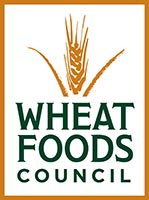Do you have a question about nutrition? Our Personal Trainer panel can help. We will be answering new questions every month on a range of topics of interest to the Personal Trainer community. If you don’t see what you are looking for, just click the Ask a Question button and send in your question.
The experts:
- Nancy Clark, MS, RDN, CSSD is an internationally respected sports nutritionist, weight coach, nutrition author, and workshop leader.
- Glenn Gaesser, PhD is a professor of Exercise and Wellness in the School of Nutrition and Health Promotion, and is director of the Healthy Lifestyles Research Center, at Arizona State University.
- Michele Tuttle, MPH, RDN, CSSD, is a world-class triathlete, coach, and Registered Dietitian.
Q
I’m a triathlete. What should I be eating to make sure I stay healthy and able to train consistently?
A
Essentially, a healthy diet for athletes is very similar to a healthy diet for anyone except that it will usually need to be higher in calories from carbohydrates (to replace muscle glycogen, the storage form of carbohydrate) and slightly higher in protein to repair muscle fibers. Here are the basics:
- A variety of vegetables: different colors vegetables (dark green, red and orange) and subgroups including legumes (beans and peas), starchy (potatoes), and other
- A variety of fruits, especially whole fruits
- Grains (such as wheat, corn, rice, quinoa, barley, etc), at least half of which are whole grains
- Reduced-fat dairy, including milk, yogurt, cheese, and/or fortified soy beverages
- A variety of protein foods, including seafood, lean meats and poultry, eggs, legumes (beans and peas), nuts, seeds, and soy products
- Oils (such as canola, olive or soybean oil)
Q
Are carbohydrates healthy? I’ve heard a lot of conflicting things about whether they are “healthy” or not, especially when it comes to products made with “white” flour.
A
Carbohydrates are found in milk, fruits, vegetables, and grains. They are the basic fuel the body and brain use for energy.
Carbohydrates from wheat products like bread, pasta, rolls, tortillas and cereals can be either whole grain or enriched grain. Both whole grains and enriched grains have a place in a healthy diet, as recommended by the Dietary Guidelines for Americans. Whole grains provide nutrients like B-vitamins, fiber, vitamin E and selenium, while enriched grains are good sources of iron, B-vitamins (folic acid, riboflavin, niacin, thiamin) as well as a little fiber. Despite claims that products made with “white flour” have less nutrients, enriched grains are great sources of folate and iron in the diet, nutrients that are often too low, especially for athletes.
Q
Is a gluten-free diet helpful for athletes?
A
Only if the athlete has celiac disease, a genetic condition in which the body is unable to digest gluten, a protein found primarily in wheat, barley and rye. For all other athletes (and regular people), a gluten-free diet can mean a diet higher in calories yet lower in important nutrients like carbohydrates, fiber, folate, iron, and B-vitamins that are vital to athletic performance and recovery from training. Research with athletes who switched to a gluten-free diet found no health or performance benefits (Lis, 2015).
Q
I experience a lot of stomach cramping and diarrhea when I run. Should I stop eating wheat?
A
Lately, wheat has been falsely blamed for a variety of digestive ills, but it’s very important to look beyond food when digestive issues are going on. They are often due to a variety of factors (including lifestyle and medications), not just food. For example, stomach cramps may be due to eating too soon before a hard workout, and diarrhea from becoming dehydrated. An unusually high intensity workout or race can also create problems. In addition, some athletes experience “runner’s trots” which are due to the physical jostling of the intestines when running.
If you are experiencing any kind of chronic digestive issues, please talk to your doctor and sports dietitian and keep a food diary recording your food and beverage intake as well as when the symptoms occur. You may be surprised to find that digestive issues are due to a number of factors, not just food.
Q
I work out at high intensities 3 times per week for about an hour each time and within 30 minutes have a protein shake. What are some other quick recovery meals for after my workouts?
A
Here are just a few of many possibilities:
- Peanut butter & banana on bread, English muffin or crackers
- Eggs and toast with strawberries
- Milk and cereal
- Yogurt with fruit
- Tortilla with cheese and beans
- Roast beef or turkey on a roll with lettuce and tomato
